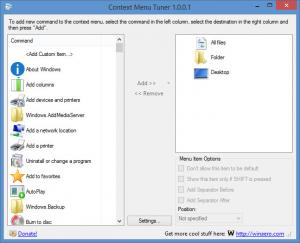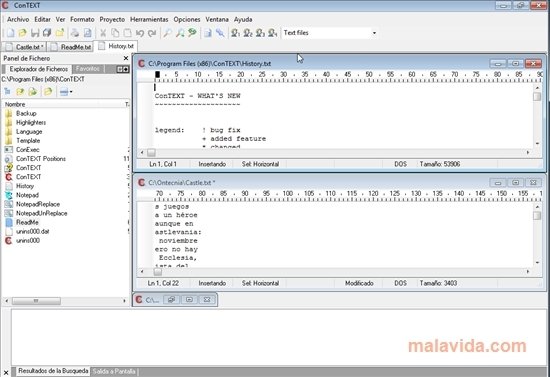


Can I strip out the copyrights on Open Source code and put in my own? What are "contributor agreements"? Are they like open source licenses? How do I apply to software I'm releasing?
Context Software Free Software Foundation
What can I do?What is "free software" and is it the same as "open source"?"Free software" and "open source software" are two terms for the same thing: software released under licenses that guarantee a certain specific set of freedoms.The term "free software" is older, and is reflected in the name of the Free Software Foundation (FSF), an organization founded in 1985 to protect and promote free software. Someone is violating a copyleft license, for example by refusing to give me source code when they are required to. What does it mean to "distribute" a program? Is letting people use it on my server the same as distribution? Is Open Source simply because it's written in ? I want to publish some code as Open Source code — can I get a license from you?
Context Software How To Promote It
The two definitions lead to the same result in practice, but use superficially different language to get there.This history has led to occasional confusion about the relationship between the two terms. OSI's term "open source", as defined in the Open Source Definition, makes clear that open source specifically entails not mere inspection access but also conveying to recipients the perpetual right to fork covered code and use it without additional fees.The FSF uses a shorter, four-point definition of software freedom when evaluating licenses, while the OSI uses a longer, ten-point definition. Going back further, in the 1980s there were uses of "open" in the computing industry that primarily connoted something like "absence of hardware vendor lockin". Today some people use both terms, choosing according to context and audience.One of the tactical concerns often cited by adopters of the term "open source" was the ambiguity of the English word "free", which can refer either to freedom or to mere monetary price this ambiguity was also given by the OSI founders as a reason to prefer the new term (see "What Does `free' Mean, Anyway?", and similar language on the marketing for hackers page, both from the original 1998 web site).In the 1990s, the term "open" applied to software source code was sometimes used to imply source code being merely inspectable or visible or available. Like the FSF, the OSI's founders supported the development and distribution of free software, but they disagreed with the FSF about how to promote it, believing that software freedom was primarily a practical issue rather than an ideological one (see for example the entry "How is `open source' related to `free software'?" from the OSI's original 1998 FAQ page).Many who later adopted the term "open source" broadly shared the ideological perspective of the FSF but had some disagreements over strategy and rhetoric.
Both the original and the new work are Open Source the copyleft license simply ensures that property is perpetuated to all downstream derivatives. For example, if you write some software and release it under the GNU General Public License (a widely-used copyleft license), and then someone else modifies that software and distributes their modified version, the modified version must be licensed under the GNU GPL too — including any new code written specifically to go into the modified version. Some people also prefer to use the term "free and open source software" (or FOSS, FLOSS ) for this reason.See also our history page for more information about the history and usage of the term "open source".What is "copyleft"? Is it the same as "open source"?"Copyleft" refers to licenses that allow derivative works but require them to use the same license as the original work. When you sense a potential misunderstanding, you may wish to reassure your audience that the terms are essentially interchangeable, except when being used specifically to discuss the history or connotations of the terminological difference itself. In fact, both terms refer to software released under both kinds of license.Neither term binds exclusively to one set of associations or another, however it is always question of context and intended audience. Another mistake, which has occasionally been seen since about 2008, is to assume that "free software" refers only to software licensed under copyleft licenses, since that is how the FSF typically releases software, while "open source" refers to software released under so-called permissive (i.e., non-copyleft) licenses.
"permissive" licensing.What about software in the "public domain"? Is that Open Source?For most practical purposes, it is — sort of. Merely distributing a copyleft work alongside a non-copyleft work does not cause the latter to fall under the copyleft terms.For more information, look at the text of the specific copyleft license you're thinking of using, or see the Wikipedia entry on copyleft. Such licenses are usually called either "non-copyleft" or "permissive" open source licensesCopyleft provisions apply only to actual derivatives, that is, cases where an existing copylefted work was modified. For example, the BSD license is a non-copyleft Open Source license. When an Open Source license is not copyleft, that means software released under that license can be used as part of programs distributed under other licenses, including proprietary (non-open-source) licenses. You should read the license to understand its requirements for source code distribution.)Most copyleft licenses are Open Source, but not all Open Source licenses are copyleft.

Government works as described above, where it is not easy to apply a license, and the software must be released into the public domain. It also enables the protection of attribution, and various other non-restrictive rights, that cannot be reliably enforced when there is no license.There are certain circumstances, such as with U.S. Using a clear, recognized Open Source license actually makes it easier for others to know that your software meets the Open Source Definition. This approach would not be useful to the OSI's mission, because open source is an international phenomenon and we only want to approve licenses that meet the Open Source Definition everywhere.Thus we recommend that you always apply an approved Open Source license to software you are releasing, rather than try to waive copyright altogether.
(This is assuming, of course, that in the laws of releasing jurisdiction the meaning of "public domain" is compatible with the Open Source Definition.) After all, the freedoms guaranteed by open source licenses are still present, and it is possible for the familiar dynamics of open source collaboration to arise around the software.For a detailed discussion of the complexities of the public domain and open source, search for the words "public domain" and "PD" in the subject headers of the January 2012, February 2012, and March 2012 archives of the OSI License Review mailing list.


 0 kommentar(er)
0 kommentar(er)
